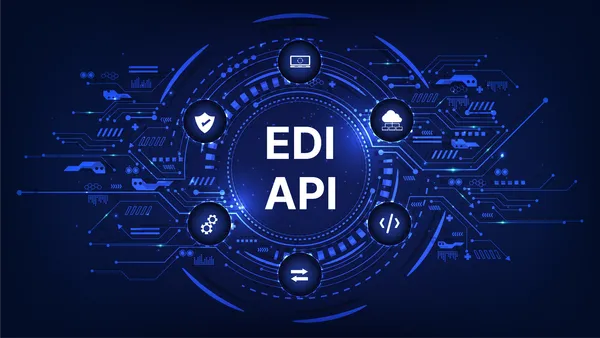The tuna fisherman spends 14 to 16 hours a day on a boat in the ocean waters off Indonesia. Tech executive Tony Costa has been right by his side.
"I saw him haul in an 80-pound tuna with his hands," said Costa, SVP and CIO at seafood company Bumble Bee Foods LLC, in an interview with CIO Dive.
Costa has made a half-dozen trips to Indonesia in the past two years to negotiate the details of a blockchain system that traces the path of yellowfin tuna from Indonesian waters to consumers.
The result: Buyers of Bumble Bee's "Natural Blue by Anova" frozen tuna steaks can use their smartphones to scan a QR code on the package and learn about the freshness and ethical standards of the fish catch.
The QR code connects to "a live website that will automatically, real-time, pull detailed information about that product: the species of the fish, where it was caught, how it was caught, when it was caught, and fair-trade certification," Costa said.
Indonesia historically has had problems with illegal fishing and over-fishing. Today, consumers and retailers want to know that products are the result of sustainable fishing practices, Costa said.
"We're communicating this information to the consumer to not only provide them the highest quality of fish, but the highest level of transparency," he said.
Bumble Bee will expand the blockchain initiative to additional products, and will provide more data to retailers, in the near future, said Costa.
Sometimes blockchain is overkill for a supply-chain application, said Martha Bennett, an analyst at Forrester Research.
"For example, if all that's needed is a straightforward track-and-trace solution, there are several available SaaS offerings that offer more sophisticated functionality than many blockchain-based equivalents," she said in an email.
Bumble Bee can already trace products through the supply chain using conventional technologies.
But, Costa said, it was possible to "take it to the next level" by using blockchain technology, where data in a distributed ledger is encrypted. It's tamper-proof, yet shareable among all parties in the supply chain.
The Bumble Bee project runs on tech vendor SAP's cloud-based blockchain platform.
The single platform "makes it easier for us, as well as our suppliers and vendors," Costa said. "If you think about all of entities involved in the supply chain, from the fisher all the way to the finished good processor, we don't own any of those processes. They are the ones putting their information in the blockchain."
That's why he made all those trips to Indonesia – to secure the cooperation and trust of all parties to share information in the blockchain system.
"It required some combination of persuasion and persistence," Costa said.
The CIO said the negotiations involved the Indonesian government's Ministry of Maritime Affairs and Fisheries; the U.S. Agency for International Development; a local organization called Masyarakat Dan Perikanan Indonesia (MDPI) that strives to improve fishing communities; and tuna-processing company Harta Samudra.
"The blockchain technology was the least of our challenges. The key to success, and the real value, is getting disparate parties to contribute information," Costa said.
Dealing with immature technology
While there's a lot of hype surrounding blockchain, a new Deloitte survey of 1,386 global executives suggests there is a corporate shift from just dabbling in blockchain to funding practical projects.
Deloitte reported 40% of those executives said they're willing to invest $5 million or more in new blockchain initiatives over the next 12 months.
Research firm Gartner, however, cautions that blockchain projects are in danger of stalling due to immature technology. Critics say blockchain is hard to scale up, and produces a sluggish, resource-intensive computing process.
Costa is keenly aware that blockchain is an immature technology in the consumer products industry.
"We made sure that we kept the data that goes on the blockchain very manageable, because we know it's going to grow exponentially," Costa said. "And we realize that performance long-term could be a big problem, especially when there's no real technology to archive blockchain records."











